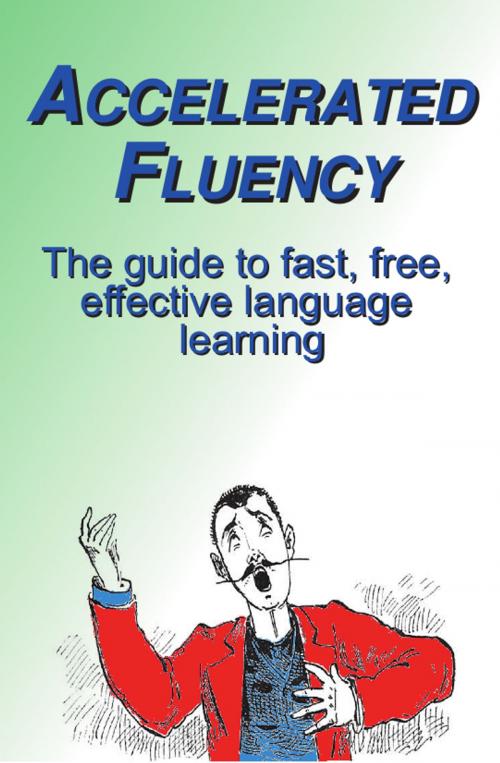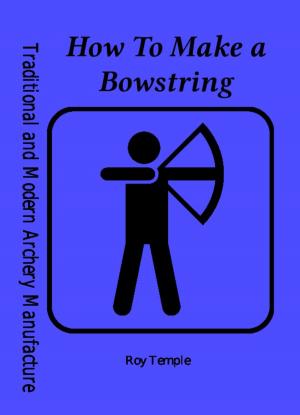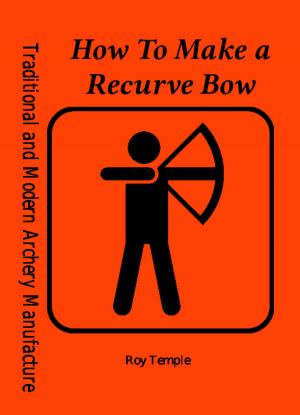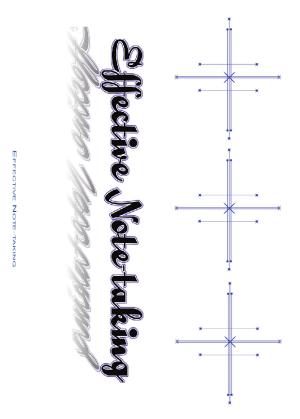Accelerated Fluency
The Guide to Fast, Free, Effective Language Learning
Nonfiction, Reference & Language, Foreign Languages, Language Arts, Health & Well Being, Self Help, Self Improvement| Author: | Rick Dearman | ISBN: | 1230000224559 |
| Publisher: | XGI Publications | Publication: | January 8, 2014 |
| Imprint: | Language: | English |
| Author: | Rick Dearman |
| ISBN: | 1230000224559 |
| Publisher: | XGI Publications |
| Publication: | January 8, 2014 |
| Imprint: | |
| Language: | English |
SAVE 60% off the cover price until the end of August!
A book for people who know learning a language isn't easy, but want, even NEED, to be successful.
You can learn ANY foreign language.
The benefits of learning another language aren't immediately evident, but a second language can make you a better listener, boost your creativity, spur brain growth, and for some people, even delay Alzheimer's. Additional rewards could include opportunities for employment, increased salary potential, new friends, and interesting travel opportunities.
Learning a 2nd language can help you to become more creative. Researchers concluded learning a new language improves planning, cognitive flexibility, and working memory.
Learning a 2nd language can help you become a better communicator in your own native language. It will help you to clarify your native tongue, force you to evaluate the words you use, the word order, verbs, and the ways you use your own language to translate them into another. Becoming more conscious of your own language will make you communicate more clearly. This effect carries over to your writing as well as speech.
Bilingual people hear better! A study at Northwestern University provides the first biological evidence bilinguals have enhanced attention and working memory. They can pick out a speakers voice amidst distracting noises better than monolingual people. Being bilingual not only makes you a better speaker, but a better listener.
Studies show people who make decisions in a foreign language are more detailed, less biased and generally better decision makers.
Everyone knows anything worthwhile isn't easy, and most easy things aren't worth it. When searching for a book on how to learn a language you typically hear two types of approaches.
No grammar! Learn like a child.
“You can learn a language like a child learns their native language.” Is this really so great? Developmental experts agree it takes eight years for a child to master all speech sounds as well as rate, pitch and volume and have the ability to use complex and compound sentences. Speaking with an adult would take eight years, do you really want to wait that long?
Learn a language in only 3 months!
Other books say you can learn a language in three months. It is possible to learn a language to intermediate level in three months if you are doing 5-10 hours per day of reading, writing, speaking and listening. The United States Foreign Service Institute estimated 750 - 1320 hours of work before reaching an upper intermediate fluency in a language. So if your spending 8 hours a day learning you can easily reach upper intermediate level in only 3 – 6 months.
Now the bad news.
OK, now the reality of learning a language. It is hard work, and if you don't start off correctly you'll wind up redoing a lot of hard work. Let's be realistic:
- People aren't going to dedicate 5-10 hours per day to learn a language in 3 months
- Nobody wants to talk baby talk to another adult, even in a foreign language
- It is hard to stay motivated over a long time without an action plan
This book is about the reality of language learning. It covers subjects and ideas which will make the time you invest in language learning productive and effective.
This book teaches you what you need to know and offers tips along the way to become fluent in any language. To stick with the language over the long haul you must:
- Stay motivated when learning gets tough
- Develop habits and methods to help you learn effectively
- Manage your study time in the most effective way possible
- How to use grammar as a framework. Don't learn like a baby, learn like an intelligent literate adult
- Develop reading, speaking and writing techniques to maximise your learning
This book will show you all this and assist you in creating a learning plan specifically tailored to you. Learning any new skill is hard work and practice, but with the right action plan, the motivation tools, you'll become fluent and successful in any language you choose to learn.
Start creating your learning plan today with the help of Accelerated Fluency.
SAVE 60% off the cover price until the end of August!
A book for people who know learning a language isn't easy, but want, even NEED, to be successful.
You can learn ANY foreign language.
The benefits of learning another language aren't immediately evident, but a second language can make you a better listener, boost your creativity, spur brain growth, and for some people, even delay Alzheimer's. Additional rewards could include opportunities for employment, increased salary potential, new friends, and interesting travel opportunities.
Learning a 2nd language can help you to become more creative. Researchers concluded learning a new language improves planning, cognitive flexibility, and working memory.
Learning a 2nd language can help you become a better communicator in your own native language. It will help you to clarify your native tongue, force you to evaluate the words you use, the word order, verbs, and the ways you use your own language to translate them into another. Becoming more conscious of your own language will make you communicate more clearly. This effect carries over to your writing as well as speech.
Bilingual people hear better! A study at Northwestern University provides the first biological evidence bilinguals have enhanced attention and working memory. They can pick out a speakers voice amidst distracting noises better than monolingual people. Being bilingual not only makes you a better speaker, but a better listener.
Studies show people who make decisions in a foreign language are more detailed, less biased and generally better decision makers.
Everyone knows anything worthwhile isn't easy, and most easy things aren't worth it. When searching for a book on how to learn a language you typically hear two types of approaches.
No grammar! Learn like a child.
“You can learn a language like a child learns their native language.” Is this really so great? Developmental experts agree it takes eight years for a child to master all speech sounds as well as rate, pitch and volume and have the ability to use complex and compound sentences. Speaking with an adult would take eight years, do you really want to wait that long?
Learn a language in only 3 months!
Other books say you can learn a language in three months. It is possible to learn a language to intermediate level in three months if you are doing 5-10 hours per day of reading, writing, speaking and listening. The United States Foreign Service Institute estimated 750 - 1320 hours of work before reaching an upper intermediate fluency in a language. So if your spending 8 hours a day learning you can easily reach upper intermediate level in only 3 – 6 months.
Now the bad news.
OK, now the reality of learning a language. It is hard work, and if you don't start off correctly you'll wind up redoing a lot of hard work. Let's be realistic:
- People aren't going to dedicate 5-10 hours per day to learn a language in 3 months
- Nobody wants to talk baby talk to another adult, even in a foreign language
- It is hard to stay motivated over a long time without an action plan
This book is about the reality of language learning. It covers subjects and ideas which will make the time you invest in language learning productive and effective.
This book teaches you what you need to know and offers tips along the way to become fluent in any language. To stick with the language over the long haul you must:
- Stay motivated when learning gets tough
- Develop habits and methods to help you learn effectively
- Manage your study time in the most effective way possible
- How to use grammar as a framework. Don't learn like a baby, learn like an intelligent literate adult
- Develop reading, speaking and writing techniques to maximise your learning
This book will show you all this and assist you in creating a learning plan specifically tailored to you. Learning any new skill is hard work and practice, but with the right action plan, the motivation tools, you'll become fluent and successful in any language you choose to learn.
Start creating your learning plan today with the help of Accelerated Fluency.















